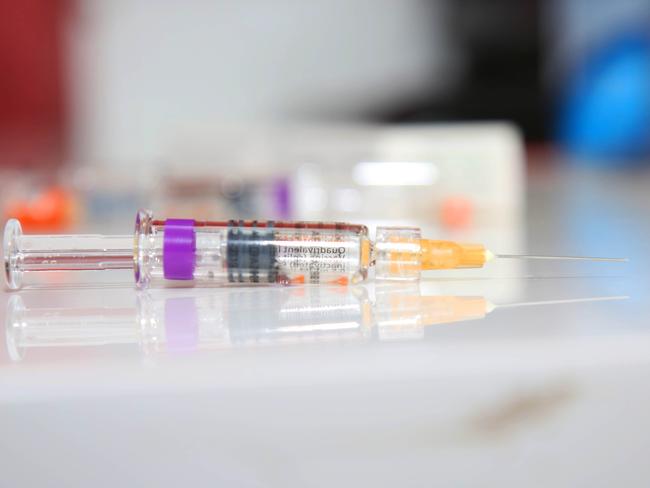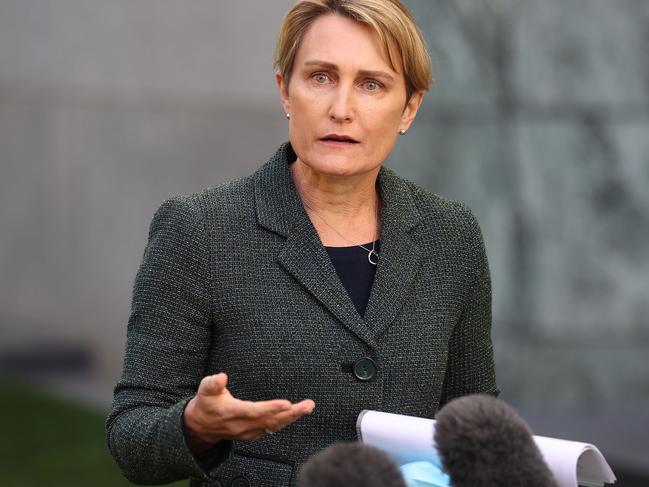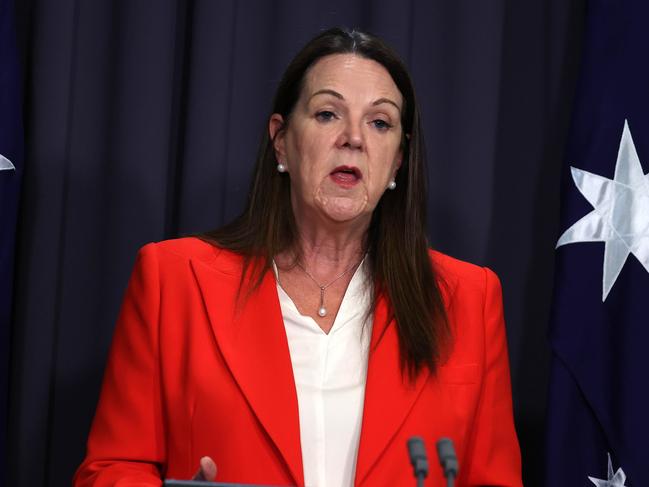Flu season 2022: Young Australians and kids dominate cases as more than 7000 notifications in just two weeks
These Australians are emerging as the most at-risk age groups for influenza spreading early across the country. But there are ways to avoid it.
National
Don't miss out on the headlines from National. Followed categories will be added to My News.
Young Australians are emerging as the most at-risk age groups for influenza as the country sees an early start to the flu season.
National disease surveillance data has revealed 10,599 cases have been reported this year alone, and 7173 of them were diagnosed the two weeks to May 8.
According to the Australian Department of Health’s Influenza Surveillance Report this year, people aged 15–24 years and children aged younger than 10 years have had the highest influenza notification rates.
There have been 153 hospital admissions due to influenza, including seven intensive care unit (ICU) admissions, since the start of seasonal surveillance in April.
A new fortnightly report is due to be released this week and is expected to show the upward trend continuing.
Annual peak flu season usually runs from June to September, but Australia has not seen a typical season since 2019, thanks to Covid-19 restrictions including the international travel ban.

In a joint statement, Australia’s deputy chief medical officer Dr Sonya Bennett and chief nursing and midwifery officer, Professor Alison McMillan, urged people to maximise their protection against influenza and also Covid, by being vaccinated.
“Flu vaccines registered for use in Australia are safe and effective and are the best way to protect yourself from influenza and transmitting it to others. If you have been vaccinated, you can still get the flu but it is generally a less severe illness,” they said.
“Getting your flu vaccination ahead of the peak flu season will provide the highest level of protection. This usually occurs from June to September in most parts of Australia. It takes up to two weeks for the vaccine to be completely effective, so organising your vaccination before June is best.”
They said it was important people were aware that Covid-19 vaccines don’t provide protection against influenza, and the flu vaccines do not provide protection against Covid-19.
“For this reason, it is vital people get a flu vaccine and are also up to date with their Covid-19 vaccinations – including having a Covid-19 winter booster dose if they are eligible,” they said.
“If you have been sick with Covid-19, you can receive a flu vaccine as soon as you feel well.”

The Australian Technical Advisory Group on Immunisation (ATAGI) has advised that flu vaccines can be safely administered at the same time as a Covid-19 vaccine.
Everyone six months and older is recommended to get a flu vaccine each year, and all at-risk Australians are eligible for a free vaccine through the National Immunisation Program.
These include adults 65 years and over; children aged six months to less than five years; pregnant women; Aboriginal and Torres Strait Islander people aged six months and over; and people aged six months and over with certain medical conditions that increase their chance of severe influenza and its complications.

There are also sufficient flu vaccine doses in the private market now to meet demand for people not eligible to receive the free vaccine but who wish to protect themselves from influenza. Many employers also offer free influenza vaccines to employees.
“This year we are particularly concerned about young children, as many have never been exposed to the flu virus or had a flu vaccine, and have not developed any immunity, increasing the risk of complications. Influenza can be serious for all children, even healthy children,” Dr Bennett and Professor McMillan said.
“Flu vaccination during pregnancy is safe, free and recommended during every pregnancy and at any stage of pregnancy. Babies under six months are too young to get the flu vaccine themselves. By getting vaccinated during pregnancy, protective antibodies are passed on to the baby, protecting them in their first few months of life when they are most vulnerable.”
In addition to vaccination, people should continue to practise all the prevention measures learned from Covid, including covering coughs and sneezes, regular hand washing and staying home when unwell, they said.




